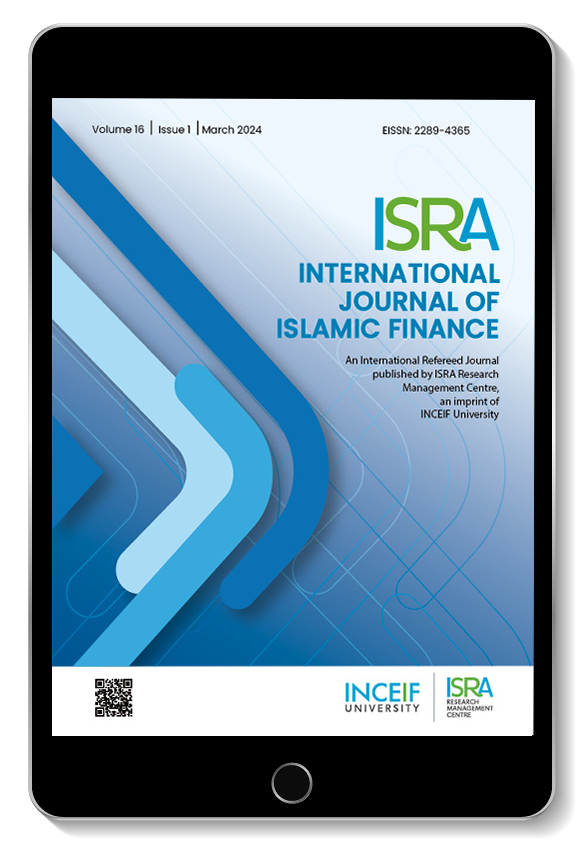An analysis of the normative parameters of reward and risk in Islamic finance
IF 1.4
Q2 BUSINESS, FINANCE
引用次数: 5
Abstract
Purpose This study aims to define the parameters of the reward-risk principle in Islamic finance as established in the literature and discuss propositions that are presented on how such a principle is to be applied to Islamic banking products. Design/methodology/approach A descriptive approach is used to explore the normative parameters and criticisms of the application of reward-risk in Islamic finance. Findings The study finds that the principle of reward-risk is embodied in the multi-component concept of ʿiwaḍ (counter value) which must be evident in market transactions that involve commercial exchanges. The components include risk, costs, effort, value-adding and capital, all of which apply uniquely to different contractual forms of financing. Research limitations/implications The study uses academic literature and industry documents along with modest contact with prominent practitioners who provided general feedback on prevalent Islamic finance industry practices. Practical implications This study exposits the variety of approaches in applying the reward-risk principle and sheds light on the primary elements of the principle which will facilitate its greater consideration by the Islamic finance industry. Originality/value This study is a meaningful attempt at conveniently summing up and applying the parameters that are considered when discussing the scope of the reward-risk principle in Islamic finance.伊斯兰金融报酬与风险的规范参数分析
本研究旨在定义文献中建立的伊斯兰金融中回报-风险原则的参数,并讨论有关如何将这种原则应用于伊斯兰银行产品的命题。设计/方法/方法使用描述性方法来探索伊斯兰金融中应用回报-风险的规范参数和批评。研究发现,回报-风险原则体现在“计数器价值”的多成分概念中,这在涉及商业交换的市场交易中必须是明显的。这些组成部分包括风险、成本、努力、增值和资本,所有这些都只适用于不同的合同融资形式。研究局限/启示本研究使用了学术文献和行业文件,并与知名从业者进行了适度接触,这些从业者对伊斯兰金融业的普遍做法提供了一般性反馈。本研究阐述了应用回报-风险原则的各种方法,并阐明了该原则的主要要素,这将有助于伊斯兰金融业对其进行更多的考虑。原创性/价值本研究是一个有意义的尝试,它方便地总结和应用在讨论伊斯兰金融中回报-风险原则的范围时所考虑的参数。
本文章由计算机程序翻译,如有差异,请以英文原文为准。
求助全文
约1分钟内获得全文
求助全文
来源期刊

ISRA International Journal of Islamic Finance
BUSINESS, FINANCE-
CiteScore
3.40
自引率
17.40%
发文量
18
审稿时长
20 weeks
期刊介绍:
It is the aspiration of the editorial committee that IJIF achieves the highest rank in quality and substance. It is thus our aim that the journal be carried in the Thompson Reuters’ ISI and Scopus databases. By ensuring high standards in articles published in Islamic finance we ensure that further innovation and research is carried out and promoted in the Islamic finance industry and academia. IJIF publishes 2 issues per annum.
 求助内容:
求助内容: 应助结果提醒方式:
应助结果提醒方式:


